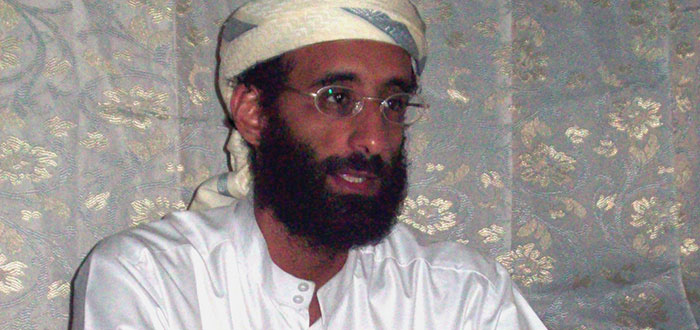Four years ago on September 30, the United States government killed Anwar al-Awlaki, a leader of the al-Qaida affiliate in Yemen and a U.S. citizen, with a drone strike. To many in the general public, Awlaki was another faceless terrorist, a ruthless radical fundamentalist Muslim who was inevitably drawn to jihad like so many before him.
To New York Times reporter Scott Shane, Awlaki was indeed a very bad man but Shane does not believe that Awlaki’s turn toward terrorism was ineluctable. Awlaki had come from an educated family, his parents were fairly secular, and he himself went to school originally to become an engineer. So how does a man who “had had a happy life and a happy career,” as Shane puts it, reach a point where “he devotes his life to killing large numbers of strangers?”
This is the question Shane examines in his book Objective Troy and the topic he talked about on September 29 at Fordham Law in a discussion with Karen J. Greenberg of the School’s Center on National Security.
After introducing Shane and speaking about his decade-long experience covering national security, Greenberg broached the main idea in Shane’s book. “You are fascinated by the question of what it was that radicalized him. What moment did he get radicalized?” Greenberg said. “To some extent, you differ in your interpretation with law enforcement about when he got radicalized.”

Shane went on to speak about Awlaki’s early years: his birth in New Mexico, his move at age 7 with his family to Yemen, his return to the United States for college at Colorado State, and his post-graduate life as a moderate imam on the West Coast and outside of Washington D.C. Shane is careful to trace Awlaki’s life to dispel the myth that he was a born-and-bred terrorist.
“He was not a secret sleeper agent of al-Qaida all along,” Shane said.
Immediately following 9/11, Awlaki condemned the attacks in an email to his younger brother, Ammar. In fact, due to Awlaki’s rising stature as a voice of reason in the U.S. Muslim community, many media outlets were interviewing him for comment. He posted his own video lectures on YouTube and became increasingly respected at interfaith events.
“In one sermon at that time, he said that American Muslims could be a bridge between the United States and a billion Muslims worldwide,” Shane said.
Later, however, Awlaki became upset with U.S. counterterrorism tactics directed at Muslims in the United States. As his popularity grew, more and more Muslims—some not-so-moderate in their views—sought him out for guidance. The FBI opened a file on him and began tracking his whereabouts. The agency’s surveillance revealed some clandestine activities, but not those that might be expected of a future terrorist. By day, Awlaki, a married man with two children, would preach about the sanctity of marriage and family values; by night, he was visiting prostitutes in Washington hotels.
When Awlaki eventually found out that the FBI had this information, he made a decisive move.
“He was risking exposure as a colossal hypocrite—potentially the loss of his career and obviously family trouble. This all made him so upset that he literally got on a plane and flew away to the UK a few days later,” Shane said.
To Shane, the flight from the United States represents a “major turn.” In England, Awlaki found himself in a milieu whose level of radical rhetoric surpassed that of the United States. This environment ultimately led to Awlaki’s shift to al-Qaida and, afterward, his demise.
After describing Awlaki’s life, Shane and Greenberg discussed Obama’s hunt for Awlaki and the complex moral and political issues surrounding drone strikes.
“Unfortunately, drones have become recruiting tools for al-Qaida,” Shane said. “The image of the drone has become a sort of sinister symbol of America.”
“We haven’t solved the problem. In a sense we’ve sort of escalated the war, and I don’t know where it ends,” he said.
The book discussion was the first event marking the beginning of the fifth year of the Center on National Security.

